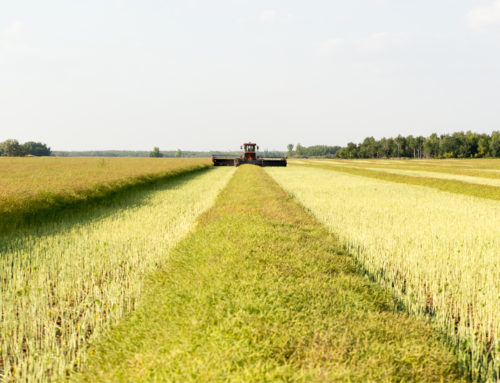The GMO debate rages on. Will it ever end? It’s doubtful. Entire organizations and movements are devoted to its demise. Google “GMO” and the third result uncovers the Monsanto “conspiracy” – creating GMO crops to sell more Roundup herbicide. Additionally, you’ll find out that developing countries are far more concerned with health and the environment either outright banning GMO food production or demanding mandatory GMO labeling. Not in Canada – no, the message here is “they” are keeping some big secret from “us” and selling GMO foods to an unsuspecting public.
These theories call into question and disrepute the regulators and scientists who have laboured over understanding this new(ish) science that has been around now (commercially) for over 20 years. Part of this issue might also be that science and technology are going beyond the non-scientist’s ability to understand. In this new world of fake news and fake science, sometimes the real thing seems too fantastical to believe. With rallying calls like “Franken-food”, “seeds of suicide”, “March Against Monsanto”, “Occupy Monsanto”, and “GMOs? Hell no!” it’s hard to get a hearing for the benefits GMOs have brought to the farm, to food production, and to feeding an ever-growing world population.
Essentially, some consumers do not trust the science. They believe the outputs are a clear and present danger to their well-being and also believe that regulatory agencies, seed developers, and chemical companies are in cahoots to defraud ignorant farmers and, them.
How are these claims being refuted and answered? There is no lack of organizations trying to educate the public, the regulators, and the politicians. Just here in Canada, we have organizations like Cereals Canada, CropLife Canada, Canadian National Millers Association, and Grain Farmers of Ontario that espouse GMOs and the advances that have benefited Canadian farmers. Industry organizations, such as Ag More Than Ever, have sprung up, as well. What they all have in common is advocating for agriculture and all its technologies and educating those who are removed from the land about agriculture.
If real science can prevail against the tide of fake news, screaming headlines, and internet-sourced facts, perhaps GMO’s would be seen in a better light. The sad fact is, it will continue to be an uphill battle. The advocating and educating can never cease – it behooves everyone in the industry, every stakeholder at every level in the value chain to continue to talk about the positives of agriculture in Canada – the real story.
Google “anti-GMO” and a monumental listing comes up of organizations and movements against this technology. In one quick search, this writer found over 50 groups against GMO in Canada alone! It was much easier to find this list than the pro-GMO list mentioned above.
Is there anything new in the GMO message – maybe not. Is there anything a grower should do? Yes – keep talking about the benefits that you enjoy as a result of GMO technologies. Talk about how GMOs help you farm better, with less pesticides, and greater productivity. Talk about your stewardship of the land and how important it is to pass it along to the next generation in as good or better shape than when you took it over. Take the high road and never berate anyone for their choices or beliefs, but never accept fake or pseudo-science in a debate. And finally, adjust to the fact you will be having this conversation for a long time.







Leave A Comment